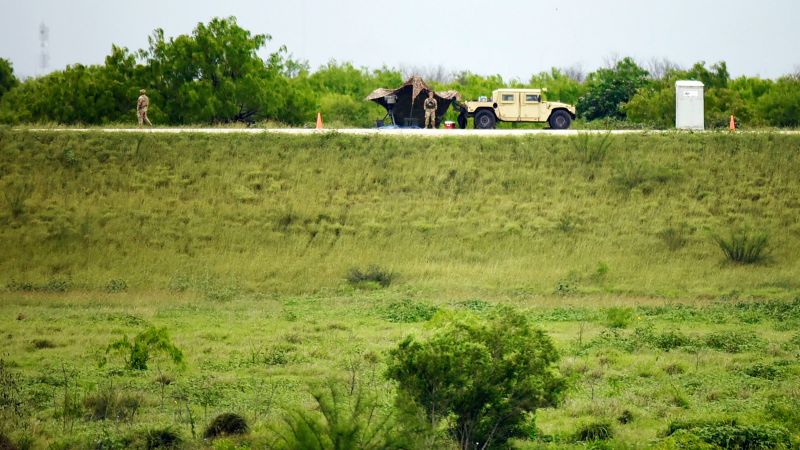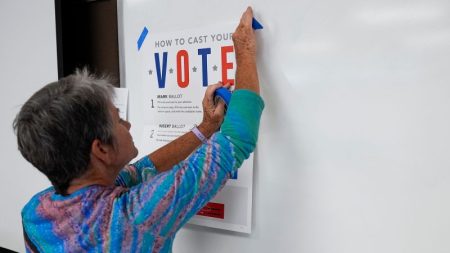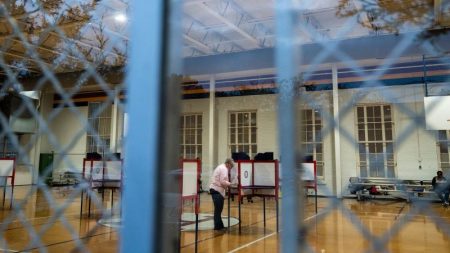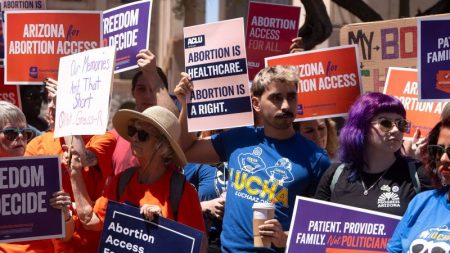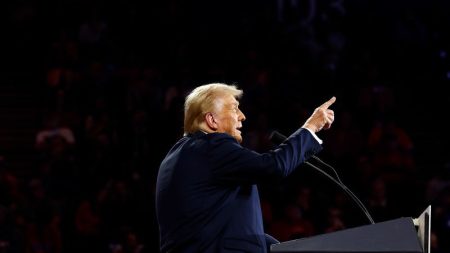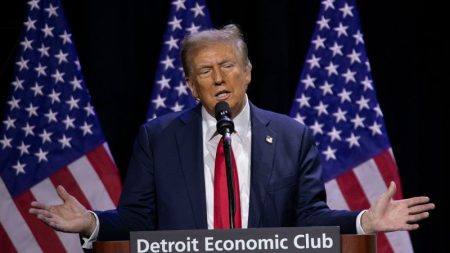A federal appeals court will hear arguments Wednesday over whether to allow Texas to temporarily enforce its controversial law that allows state officials to arrest and detain people they suspect of entering the country illegally.
The hearing comes one day after the Supreme Court cleared the way for the measure to take effect, only for it then to be blocked by the 5th US Circuit Court of Appeals late Tuesday night.
The law, SB 4, is part of the ongoing battle between Texas and the Biden administration over border policy and the flow of migrants into the United States. Immigration enforcement, generally, is a responsibility of the federal government, but the law signed by Republican Gov. Greg Abbott in December makes entering Texas illegally a state crime and allows state judges to order immigrants to be deported.
The law was initially challenged by the Biden administration, a pair of immigration advocacy groups and El Paso County, all of which have stressed throughout the litigation that the entry and removal of migrants has long been within the federal government’s bailiwick.
For its part, Texas has argued that SB 4 “comports with federal law” and claims that “states generally enjoy wide latitude to regulate alien misconduct and prosecute crimes involving illegal entry.”
The virtual oral arguments are set to begin at 11 a.m. ET.
The 5th Circuit will be considering a request by Texas officials to temporarily undo a federal judge’s ruling that suspended enforcement of SB 4. If they grant the so-called stay pending appeal, state officials would be allowed to enforce the law while the circuit considers Texas’ larger appeal of the preliminary injunction issued by the lower court.
Arguments in that appeal are scheduled for April 3.
The Supreme Court did not explain its reasoning Tuesday when it voted to let the law take effect pending further action from the 5th Circuit.
However, a concurring opinion written by Justice Amy Coney Barrett, joined by Justice Brett Kavanaugh, explained that the appeals court had handed down only a temporary “administrative” order. Barrett appeared eager to keep the Supreme Court out of reviewing such orders.
Barrett and Kavanaugh, two critical votes on the high court, wrote that the justices should stay out of second-guessing appeals courts when it comes to very short-term “administrative” pauses that are generally used to give courts a few additional days to review the briefs.
“The time may come, in this case or another, when this court is forced to conclude that an administrative stay has effectively become a stay pending appeal and review it accordingly,” she wrote. “But at this juncture in this case, that conclusion would be premature.”
Barrett wrote that if the 5th Circuit doesn’t issue a decision soon, the Biden administration and the other parties in the case could return to the Supreme Court.
The 5th Circuit scheduled Wednesday’s arguments shortly thereafter.
The three liberal justices dissented, saying the law should remain blocked.
Justice Sonia Sotomayor, whose dissent was joined by Justice Ketanji Brown Jackson, said the order “invites further chaos and crisis in immigration enforcement.”
The law, Sotomayor wrote in her dissent, “upends the federal-state balance of power that has existed for over a century, in which the National Government has had exclusive authority over entry and removal of noncitizens.”
This story has been updated with additional details.
CNN’s John Fritze contributed to this report.
Read the full article here





